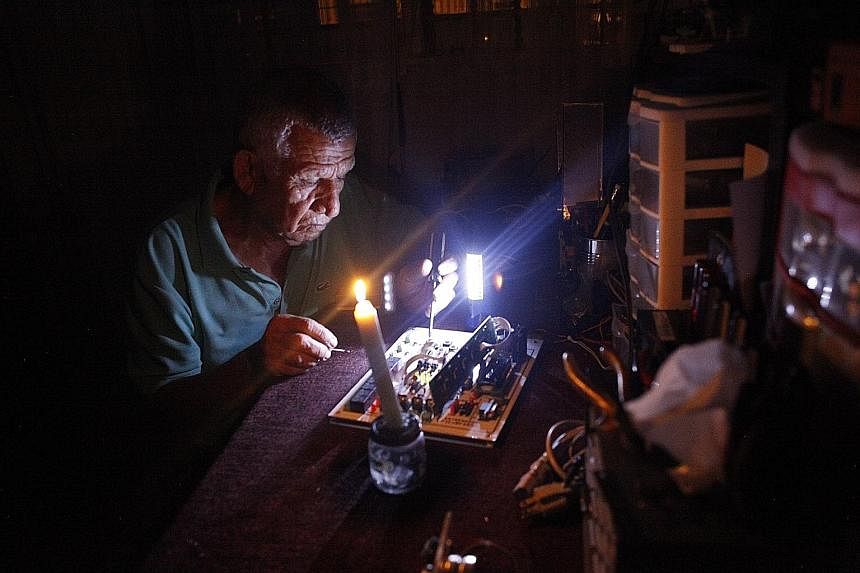CARACAS • Venezuela's government has announced enforced leave for public-sector employees on three days a week, in a bid to tackle an electricity shortage that is causing power cuts and protests.
"There will be no work in the public sector on Wednesdays, Thursdays and Fridays, except for fundamental and necessary tasks," Vice- President Aristobulo Isturiz said on television on Tuesday.
It is the latest drastic measure by the government as it grapples with an economic crisis that has left Venezuelans having to queue for hours in shops to buy scarce supplies.
President Nicolas Maduro said the new reduction in workdays, which affects two million employees, would last "at least" two weeks.
As part of its energy-saving push, the government on Monday launched a rationing plan with power cuts of four hours a day for 40 days in towns and cities across multiple states - but not in Caracas.
The move raised discontent among citizens already suffering from shortages of medicines and basic goods such as toilet paper and cooking oil.
"I ask for greater understanding, support, solidarity, action and awareness," Mr Maduro said of the new energy-saving measures.
He rejected the protests and violence that have erupted as the measures were implemented in the western city of Maracaibo, where attacks on businesses and at least one food-transport truck have taken place, media reports said.
"Whoever attempts violence during circumstances such as these... will be hit with the fullest weight of the law, because they are committing serious crimes against security and the homeland," he said.
The government had earlier cut the workday for public-sector employees to six hours and put them on paid leave on Fridays until June 6. And Mr Isturiz said on Tuesday that primary and high schools would now be closed on Fridays.
The government blames the power shortage on a drought caused by the El Nino weather phenomenon, which has led to the country's hydroelectric dams running low.
Venezuela is hoping for a lot of rain over the coming weeks to replenish the reservoirs while the restrictions are in place.
Critics say the shortage is the result of economic mismanagement and inefficient running of the energy network. Last week, the government also said it was shifting its time zone forward by 30 minutes to save power by adding half an hour of daylight. The economy has plunged along with the price of the oil that the country relies on for foreign revenues. Mr Maduro blames the collapse on an "economic war" by capitalists.
Analysts and some politicians have warned that public discontent could lead to mass unrest in the country, which is already ranked by the United Nations as one of the most violent in the world.
Anti-government street protests in Venezuela left 43 people dead in 2014.
AGENCE FRANCE-PRESSE

